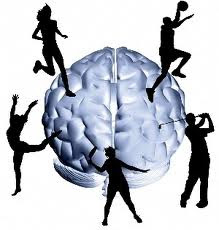
In this blog I will discuss an important Research published in July 2011, Netherland, about the relevance of a better managed and structured non-pharmacologycal treatment in primary health for depression and anxiety disorders. I have talked in previous posts that treatment is very important in order to reduce symptoms and eventually curing these mental diseases. This Study aims to examine the effectiveness of a "Stepped base model in primary care via a randomized controlled trial for patients with depressive moods and anxiety disorders. Moreover, it also aims to track the reduction of symptoms, recovery and speed of recovery. So, this Stepped care model could provide a solution for the problem of applying effective evidence-based care for depression and anxiety in primary care through its objective of initiating interventions at the right time and as adequately as possible.
The methodology consisted in randomizing 60 patients out of 120, aged 18-65 for a different kind of assestment model, rather than the primary usual care.The main and core elements of the Stepped care model is the presence of a care manager who is responsible for managing the care that the patient receives. Also, the establishment of a more integrated cooperation between primary care and especialized mental health care. This model is based in four steps. The first step is the one of "watchful waiting" where the patient gets no treatment for four weeks in order to see if he/she recovers in that time. If this is not the case (patient still has symptoms), we progress to the second step which is that of "guided self help" where the patient gets treatment but he/she works on his/her own. In all stages, patient is always being monitored. If this does not work for the patient, he/she gets to step number three: "face to face problem solving". In this step, the patient gets short psychological interventions. FInally, it there is no improvement, the four and final step is "pharmacotherapy and referral for a specialized mental health care". The sample size was 120 patients, who were randomly divided into two groups and one group was given the care as usual whereas the other 60 were treated under the Stepped model. Patients were monitored every eight weeks.

The results of this study were that the symptoms of depression and anxiety decreased overtime for both goups. However, there was no statistically significant difference between the two groups. The largest, but not significant, effect (d = -0.21) was found for anxiety. In both groups approximately 48% of the patients were recovered from their DSM-IV diagnosis at the final 6 months assessment. In other words, there was no difference between using the model or the care as usual.
In summary the Study could not demonstrate that stepped care for depression and anxiety in general practice was more effective than care as usual. This model, with recruitment through screening in patients with mild disorders is not a good methodology. For further research on stepped care we recommend recruitment of patients via referral of the GP. Studies on care models and complex interventions are of increasing importance because they provide effective health care.
I think that this study is relevant because we learn that it really does not matter the different ways of assesing a patient but what matters is the willingness of a doctor and patient to commit and work as a team in order to alliviate the problem. We can see with this research that even though half of the sample were being more monitored, the symptoms were equally reduced for them than for the other group where this close monitoring did not happen. With this result, we can also conclude that it is on each person to seak for the best treatment for them, sometimes what works for some will not work for everyone and it is important that communication between patient and doctor is effective to properly decide on the best way of treatment.
References:
1. Wike Seekles1, Annemieke van Straten1, Aartjan Beekman, Harm van Marwijk, Pim Cuijpers1,. July 2011. "Stepped care treatment for depression and anxiety in primary care A randomized controlled trial". Retrieved fromhttp://www.trialsjournal.com/content/pdf/1745-6215-12-171.pdf
